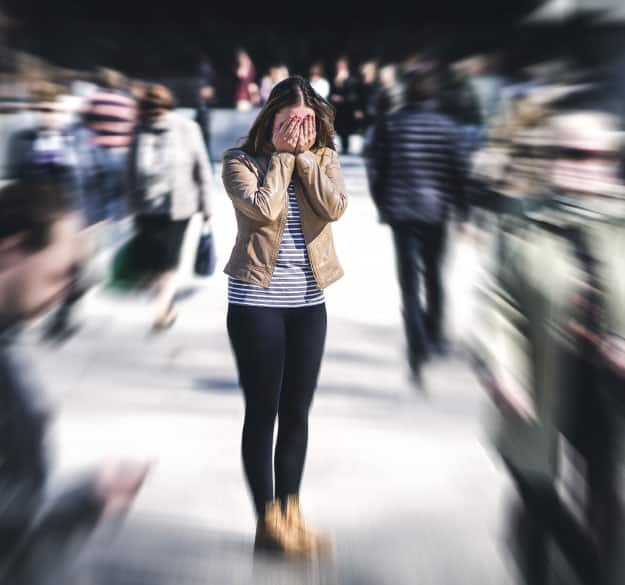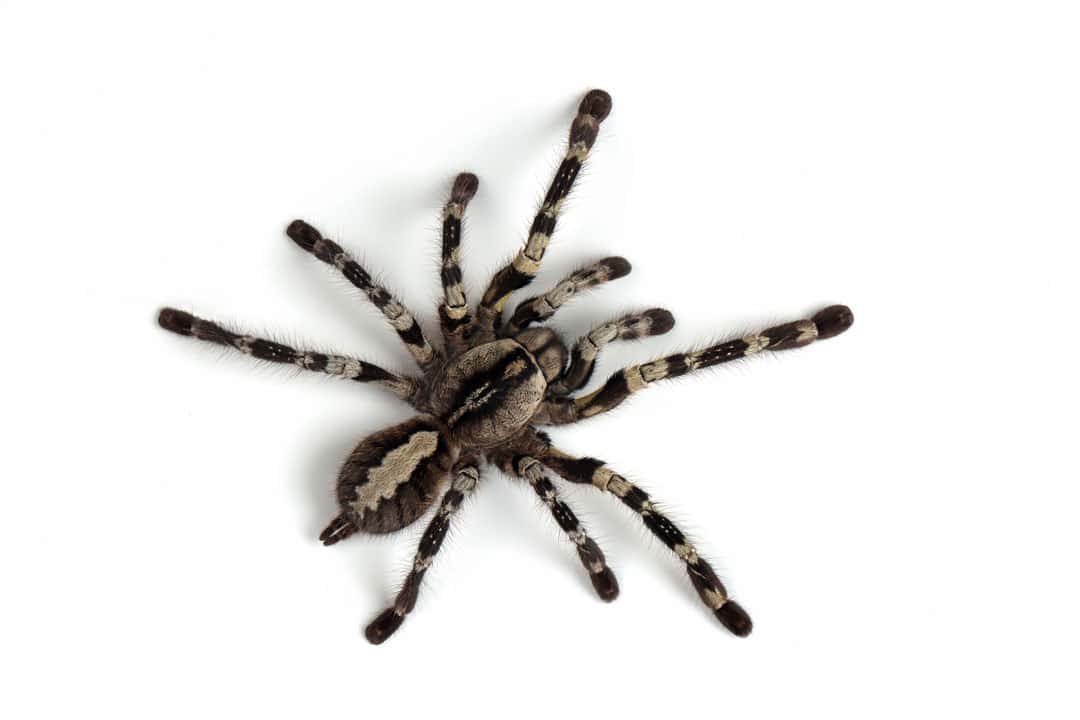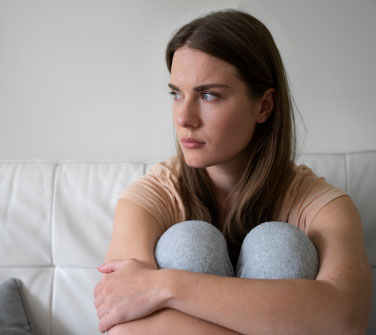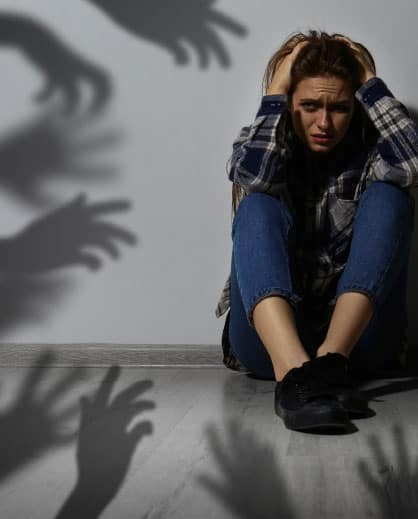Panic attacks: When fears and phobias rob quality of life
At the Institute of Peace of Mind, we help you find your way back to a life that is as free as possible from fears, compulsions and phobias





While others can tolerate the animal with its many legs, kick them flat with a shoe, get the vacuum cleaner or simply get your partner to help, a spider triggers something completely different in you – FEAR and not the „I get goosebumps“ fear, but this paralyzing, trembling, „I can’t breathe anymore“ feart.
Or: You arrange to meet your best friend for coffee in town, but a few hours before your car goes on strike. Instead of taking the bus or train, it’s better to cancel it. Because even the mere thought of the many people on a narrow train, the physical contact with other passengers or the slightest touch with another stranger, triggers the „sheer“ panic in you. You feel your heart pounding faster and faster, you feel sweat running down your forehead, you are wet all over your body as if you had just showered and breathing is becoming more and more difficult because you feel a great pressure – as if from a great burden – on your chest.
Anxiety disorders are widespread in our culture. With a lifetime prevalence of 15 to 20 percent, anxiety disorders are among the most common psychiatric disorders. Women are almost twice as likely to be affected as men. The forms of anxiety are very different. Some fears are very concrete, such as those of spiders, heights, having to speak in front of others or exams. Other fears are more diffuse, some even surprise us quite suddenly, like panic – in its severe form of the popularly called panic attack.
„Ridiculous“, your friends think, …
„Now don’t act like that“ comes from your partner and the classic: „It’s just a little spider“, you don’t hear for the first time in your life.
They have only one thing in mind: pure FEAR!
Healthy fears are manifested by fear of a real threatening object or dangerous situation. The fear should stop with the end of the threat and be appropriate to the situation. And this is exactly where the difference lies to pathological fears, which, for example, can be unconscious, irrational, very serious and persistent or have no concrete trigger.

If the anxiety-inducing situation is avoided or endured only under great fear, then a „fear of fear“ arises, the so-called phobophobia, i.e. the anxiety sufferer is not only afraid in the situation, but is already afraid of getting scared in the situation.
Since fear has a physical component as well as a mental one, those affected show strong symptoms such as:
Then do not hesitate to contact us to arrange a free introductory meeting:

At the Institute for Peace of Mind, fears, compulsions and phobias are taken seriously, with us you will be understood and not ridiculed. We know that serious anxiety disorders can have a major impact on the lives of those affected. We want to help you.
Anxiety can be treated with two different methods:
Whatever has triggered anxiety or panic in you, the key to coping is in your subconscious. Hypnosis is fast and effective, and after just a few sessions you will notice noticeable differences
Do you want to explore your fears in talk and behavioral therapy? We also offer these forms of therapy at the Institute for Peace of Mind. In a relaxed, feel-good atmosphere from home via online consultation hours or in our practice rooms – we adapt to your life situation.
Phobias are common disorders, with women becoming ill more often than men. The phobia must cause significant symptoms or interfere with everyday functioning before it can really be called a disorder.
Since anxiety has a physical component in addition to a mental component, those affected show strong symptoms such as trembling, nausea, weakness, nervousness and severe tension.
In contrast to generalized anxiety disorder (anxiety neurosis), a phobic person can avoid the fear-provoking object/situation, so-called „flight behavior“. In other words, he avoids certain situations or objects that trigger the phobia
The psychiatrists and therapists of our institute are trained to treat fears and phobias.
Depending on the individual disorder, they will work out the best possible form of therapy for you, discuss it with you and carry it out. Treatment is usually possible in both psychotherapy and hypnotherapy